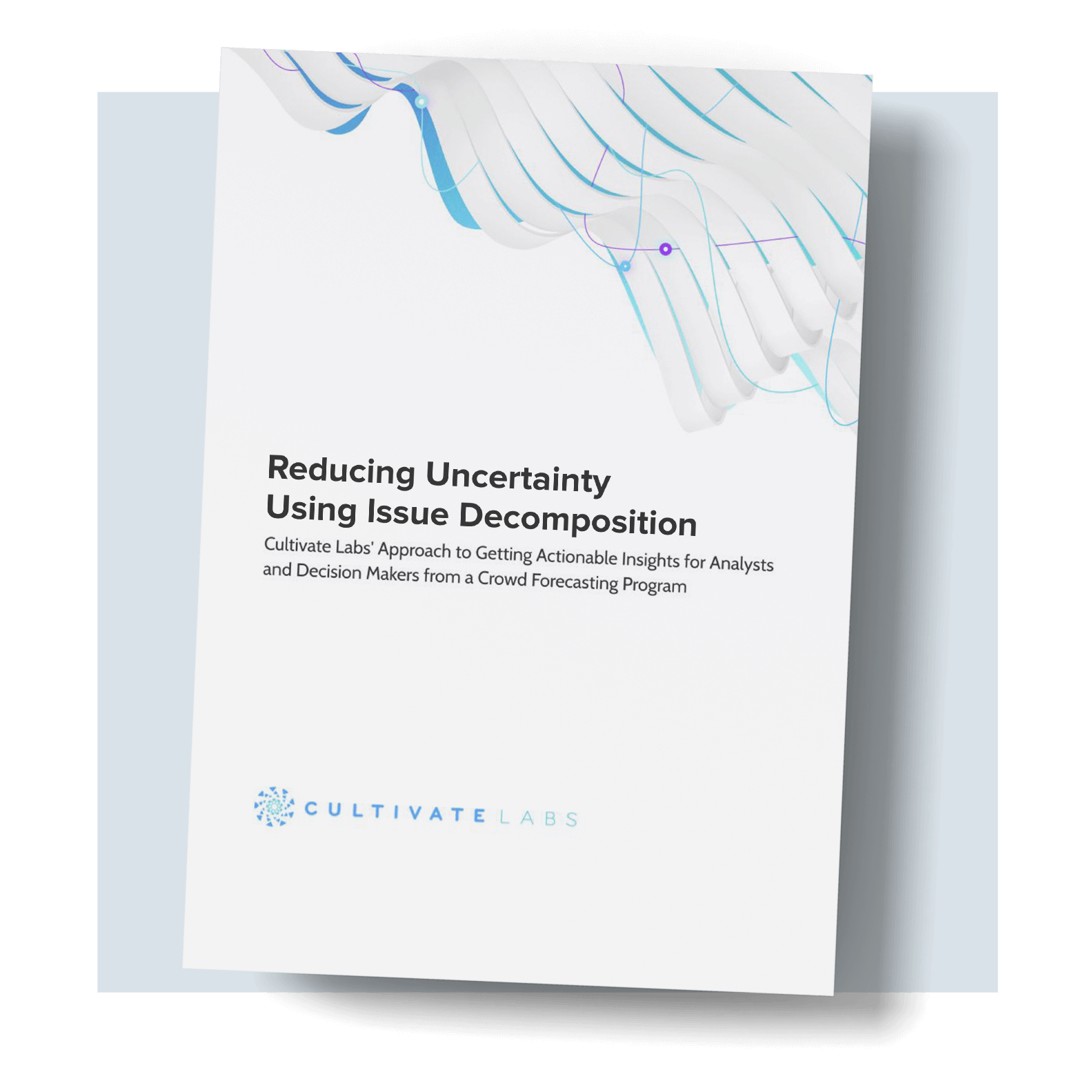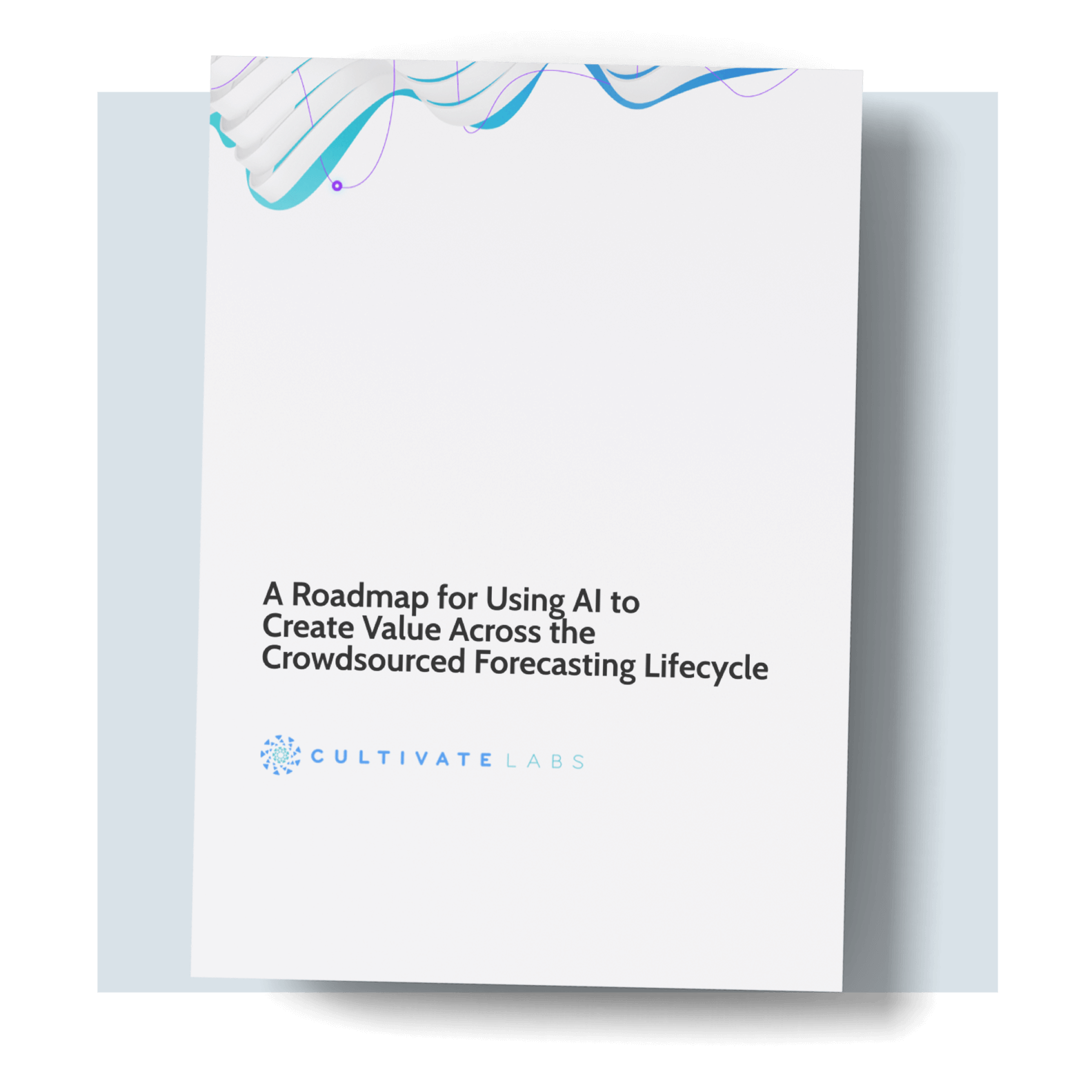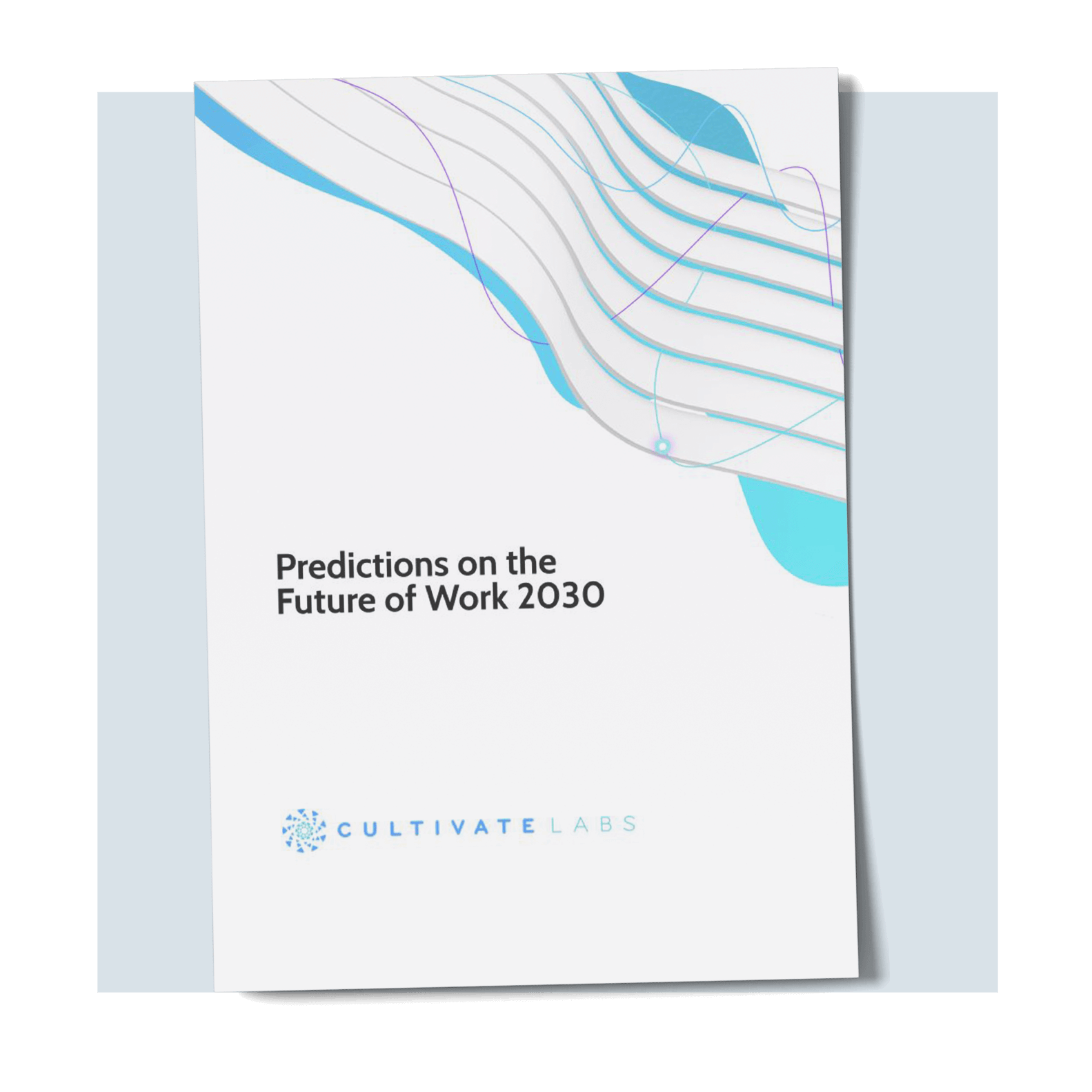Insights
Our latest white papers and perspectives on best practices to help organizations use human collective intelligence to reduce risk and create decision advantage.
Whitepaper
Reducing Uncertainty Using Issue Decomposition
Our methodology for breaking down complex issues into forecastable signals to better understand the future.
Get the Whitepaper
Decomposition stems from an analytical technique, used for decades by the U.S. Intelligence Community and others, to break down big-picture, high-impact issues into signals that can be monitored.
Cultivate has been refining the process of integrating crowdsourced forecasting with decomposition to enhance the analysis informing critical decisions for governments and organizations
Interested in running a decomposition workshop?
Contact Us to learn more.
Whitepaper
A Roadmap for Using AI to Create Value Across the Crowdsourced Forecasting Lifecycle
Our recommendations based on early experiments with AI to create efficiency and value across key aspects of the crowdsourced forecasting lifecycle, including question development, reporting, and engagement.
Get the Whitepaper

Whitepaper
Predictions on the Future of Work 2030
During and after the global COVID-19 pandemic, the way we work changed dramatically. AI, remote work, and a rising Gen Z workforce inform the megatrends we predict will continue to change the landscape.
Get the WhitepaperEnter your email and we'll send you a copy of the selected whitepapers:

Playing with ChatGPT: Summarization of Forecast Rationales
Using the hyperefficiency of ChatGPT, we cut the time it takes to summarize a collection of rationales representing different probabilistic judgments.

Assessing The Credibility Of A Crowd Forecast
With increased attention to crowd-generated forecasts as guidance to critical decisions comes the need to be as transparent as possible about the credibility of a current forecast.

Why We Stopped Supporting Prediction Markets
We chose to support opinion pools instead of prediction markets for many reason including flexibility in aggregation and risks of markets.